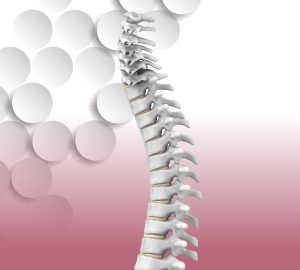It’s not always easy being a kid. At home and at school, young adults are pressured to perform, fit in and be the best. Sometimes, their young minds and lack of experience don’t offer the right solutions on dealing with it all, and they may become depressed or turn to destructive behaviors. Be aware of changes in your child, and don’t be afraid to speak up and find help.
depression
Washington University child psychiatrist Dr. Anne Glowinski says there are some key differences in how depression appears in children compared to adults. “Adults with depression may stay in bed all day or avoid eating, but these behaviors are not as common in kids,” she says. “They tend to show symptoms like irritability, crying, clinginess, headaches and stomachaches. When you’re depressed, going through the motions of life is difficult, and kids experience this as much as parents do. But children are not able to ask, ‘What is happening to me? Why am I not the same person I used to be?’ so they are less likely to bring up problems.” Kids also tend to internalize family disruptions like divorce or conflict and blame themselves for it, so it may be difficult for a parent to see that they’re struggling.
Glowinski says a visit to the family pediatrician is a good first step if depression is suspected. “Your physician should have a network of therapists who can help,” she says. “When you get a referral, ask what types of treatment the practice uses, such as medication or cognitive behavioral therapy. When kids are depressed, it impacts their self-image, relationships, academic success and more, so it’s important to get all of the facts. Ignoring depression is not an option.”
According to Glowinski, prevention also is a key part of the equation. “Risk for childhood depression can be reduced through good nutrition, quality sleep, attention to personal hygiene and regular exercise,” she notes. “A family history of depression can increase a child’s risk, so it’s important to bring this up with your health care provider as well.”
what about mom & dad?
When a child is struggling, the parents are affected just as deeply. They may feel helpless, guilty or unsure how to provide what the child needs. A good rule of thumb is to remember that before you can help your child, you must be in a position of health and strength yourself. “If you are a parent suffering from depression or other problems, one of the best gifts you can give your children is to seek treatment and take good care of your own mental health,” Glowinski advises.
➜ Understand how stress affects you. Physical signs include headaches, low energy, upset stomach, aches, pains, muscle tension and trouble sleeping. Talk with a health professional about how to identify and avoid stressors that cause problems.
➜ Protect your physical health. Exercise daily, eat fresh foods, get seven to nine hours of sleep each night, do relaxation exercises, and avoid alcohol and drugs. All of these actions support mental resilience.
➜ Talk to a counselor or health care provider if needed. Parents play an important role as caregivers, but they need support and attention as well. Knowing how and when to ask for help is a necessary life skill.
➜ Practice good mental and emotional habits. Don’t feel guilty about negative emotions; they’re normal. At the same time, try to look for the positive in each situation, and allow others to help you solve problems.
➜ Recharge yourself. Learn to take time for yourself without feeling as if you’re neglecting others. Step out of ‘caregiver mode’ by making a salon appointment, going for regular walks or scheduling a monthly lunch with friends.
Source: National Alliance on Mental Illness
addiction
Kids can be affected by substance use and addiction just as easily as adults. Lucas Dieckhaus, senior director of the intensive outpatient program at mental health nonprofit Great Circle, says alcohol and marijuana are the most common substances used by young people. “Prescription drugs, primarily painkillers and benzodiazepines (psychoactive drugs like Valium) also are high on the list, and methamphetamine is becoming popular again,” he notes. “Unfortunately, when kids use painkillers, it often turns into heroin use later on.”
So what should parents do if they suspect a child is using or developing an addiction? Dieckhaus recommends taking these steps in conjunction with counseling:
➜ The earlier the problem is identified, the better. If you’re worried, say so.
➜ Be prepared for resistance. Don’t take it personally if your child reacts negatively.
➜ Remain supportive, not punitive. Make it clear that you are trying to help.
➜ Set firm boundaries. “Part of the recovery process is establishing new norms,” Dieckhaus says. “The rules need to be fair and understood by all.”
➜ Avoid blaming your child or yourself. Focus instead on solutions to overcome the addiction. “You can’t change the past, but you can help your child make good choices for the future,” Dieckhaus says.
He cautions that some signs of substance use can mimic changes that are a natural part of adolescent development, especially as teens become more independent and hormones flare. But he cautions parents not to dismiss them as ‘just part of growing up.’ “Keep paying attention,” he advises. “Don’t be afraid to seek help for your child, whether it’s for behavioral health issues or other problems.”
eating disorders
Dr. Marianne Dunstan, a SLUCare pediatrician at SSM Health Cardinal Glennon Children’s Hospital, says eating disorders are psychiatric conditions that can have serious physical consequences like severe weight loss and malnutrition. The two most commonly known are anorexia nervosa, which causes patients to focus excessively on losing weight by avoiding food, and bulimia nervosa, which usually involves food binging and vomiting. Parents should pay attention to their child’s eating habits and address any concerns. Other patterns to watch out for include:
➜ Binge Eating Disorder: Repeated food binges without ‘compensatory behaviors’ like vomiting or laxative use
➜ Avoidant Restrictive Food Intake Disorder (ARFID): Highly selective eating habits or a food aversion often caused by a traumatic episode like choking
➜ Female Athlete Triad: Girls or women don’t consume enough calories to compensate for energy burned during exercise; bone density and menstrual periods are affected.
➜ Orthorexia: An exaggerated focus on ‘healthy’ eating. People with the condition may insist they can’t eat any sugar, or they only can eat organic produce, beyond what is reasonable. They often try to make others conform as well, Dunstan notes.
To help young people regain a healthy relationship with food, it’s important to start with a visit to a pediatrician or primary care doctor, Dunstan advises. “Today, physicians are more aware of these problems and can look for signs of them in children,” she says.
when should you seek help?
Every child is different, but there are some common signs of trouble that may indicate a need for mental health services.
Young children may benefit from an evaluation if they:
• Have frequent tantrums or are often irritable
• Often talk about fears and worries
• Have frequent stomachaches or headaches
• Have trouble sitting quietly or focusing
• Sleep too much or too little, or have frequent nightmares
• Don’t want to play with other children
• Have trouble in school
Adolescents may benefit from an evaluation if they:
• Lose interest in activities they used to enjoy
• Have low energy
• Sleep too much or too little
• Spend a lot of time alone or avoid social activities
• Diet or exercise excessively
• Lose weight suddenly
• Neglect personal hygiene
• Have mood swings or personality shifts
• Engage in self-harm or risky behaviors, or have suicidal thoughts
• Smoke, drink or use drugs
Sources: National Institutes of Mental Health, Great Circle









